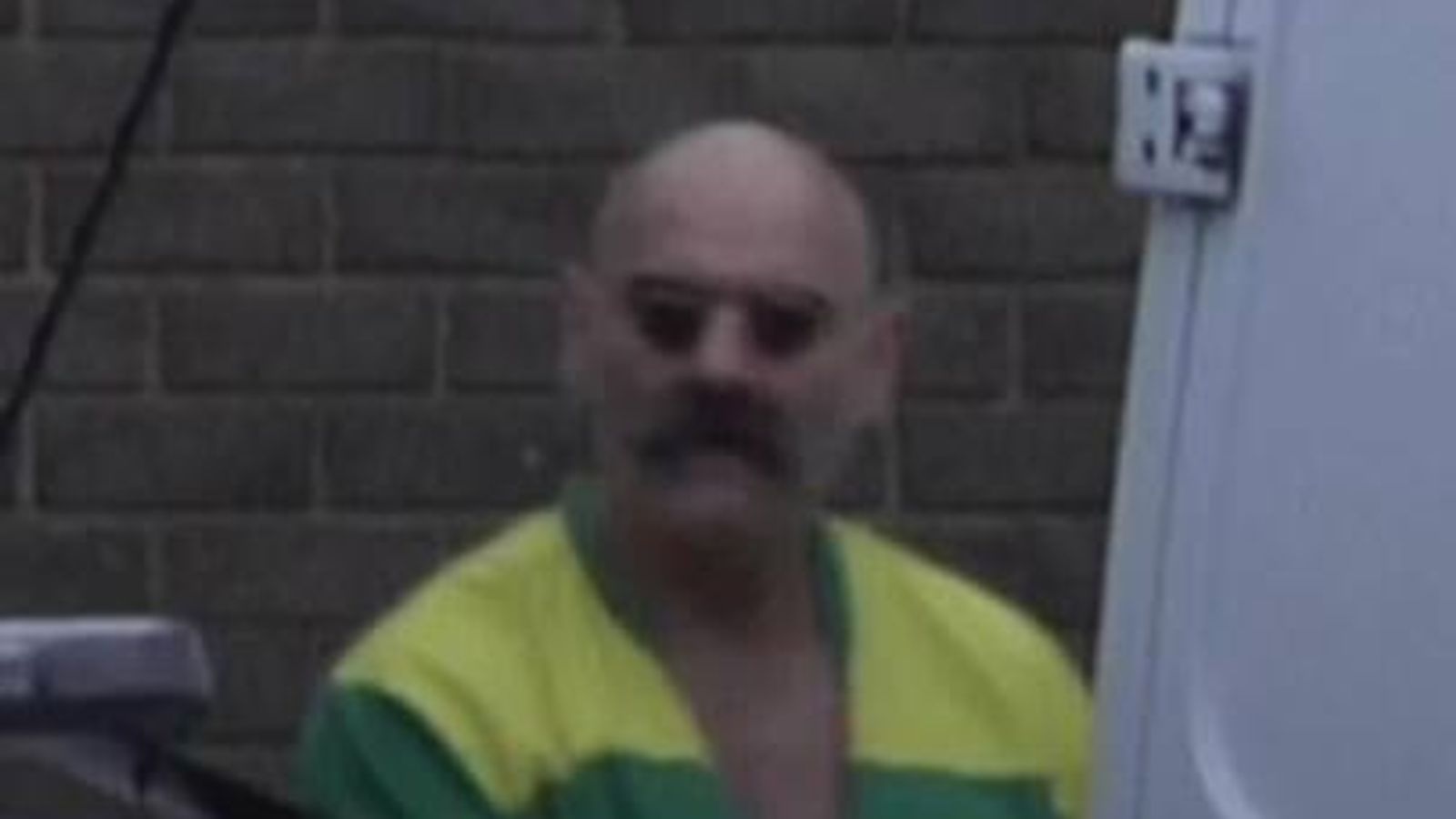Charles Bronson, known as Britain’s most notorious prisoner has been in jail for nearly 50 years, with most of his time in solitary confinement.
The 70-year-old’s solicitor Dean Kingham said that Bronson is “reformed” and urged Justice Secretary Dominic Raab to grant a pardon.
In a letter to Raab, Kingham asked him to use his prerogative power to free Bronson, saying he has made progress in prison.
Bronson, now known as Charles Salvador – named after the artist Salvador Dali – sent Sky News a postcard from his prison cell days before his public parole hearing.
He wrote: “They should have compassion for my mother. It’s her life-long dream to see me free and happy.”
Here, Sky News takes a look at the life of Charles Bronson and why he’s in prison.
Who is Charles Bronson?
Born in 1952 and originally known as Michael Gordon Peterson, Bronson – who has also been known as Charlie, Charles Ali Ahmed, Mickey and Charles Salvador – was one out of three sons to Eira and Joe Peterson.
Politics was a large part of the family, as Bronson’s uncle and aunt both served as the mayor and mayoress of Aberystwyth in the 1960s and 70s.
His father is also said to have run the Conservative Club in the resort town.
In 2000 his aunt Eileen Parry told the BBC: “As a boy he was a lovely lad. He was obviously bright and always good with children.
“He was gentle and mild-mannered, never a bully; he would defend the weak,” she added.
Bronson lived in Luton from the age of four, but during his teenage years, he moved to Cheshire with his family – where his aunt Ms Parry said the life of crime first began.
What crimes has Charles Bronson been accused of?
In 1974, Bronson was jailed for aggravated burglary, assault with intent to rob and possession of a firearm at the age of 21 and sent to HM prison in Liverpool, formerly known as Walton Goal, a category B local men’s prison.
The sentence, which was originally seven years, had been extended several times due to violent attacks on prison staff and fellow inmates for which he was convicted of in 1975, 1978 and 1985.
In 1987 he was released from prison at the age of 34 – however, after 69 days he was back in prison, sentenced in 1988 to seven years for robbery at a jeweller’s shop.
Experiencing a few years away from prison, Bronson was again released in 1992, but just a few weeks later was jailed for eight years for intent to rob and has been behind bars since then for violent offences committed while in custody.
In 1994 he was given seven years for false imprisonment.
And in 1997 Bronson took a deputy prison governor, staff and three inmates hostage, for which he received five years.
A few years later in 1999, he held an art teacher hostage for three days in Hull prison.
Although Bronson did not physically hurt the victim, he did leave him traumatised – leading the teacher to not return to work.
Bronson was given a discretionary life sentence for the incident, to run for a minimum of three years, which expired in 2003.
Later that year, a special prison unit was set up at the prison to reduce the risk posed to staff and other prisoners.
The charges however did not stop there and in 2014 Bronson was further sentenced to three years for assaulting a prison governor.
Read more:
Parole hearing begins for Britain’s most notorious prisoner
Charles Bronson launches bid for freedom at parole hearing
The bid for freedom
Branson has had many parole bids turned down due to violent outbursts throughout the years.
In the public parole hearing on Monday, Bronson’s lawyers argue that it has been with years since his last conviction and four years since internal prison adjudication for violence.
Please use Chrome browser for a more accessible video player
In a voice message to Sky News from his cell last year, Bronson said: “It’s an absolute liberty. I’ve never murdered anyone, I’ve never raped anyone. What am I in jail for? People don’t believe it. They think I’m a serial killer.”











